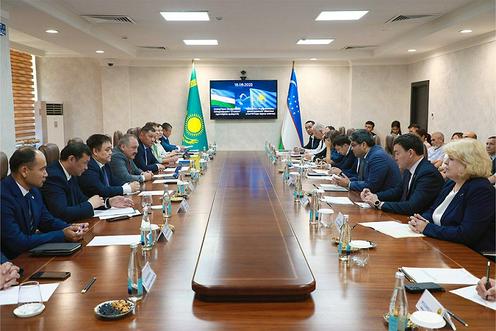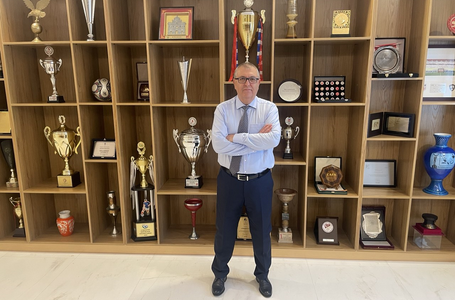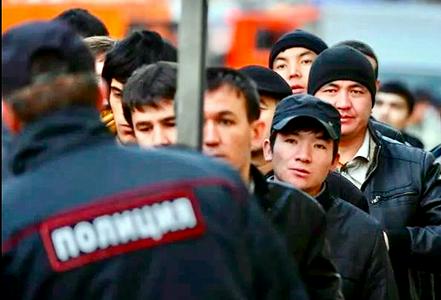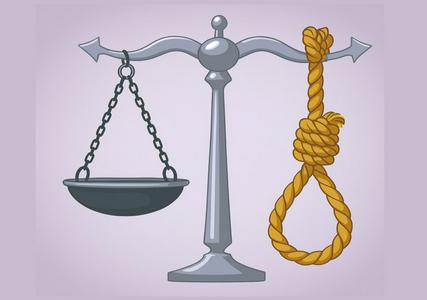Officials from Uzbekistan and Kazakhstan responsible for nuclear power plant (NPP) construction have discussed establishing a joint rapid response mechanism to strengthen preparedness for emergencies at energy facilities. The working meeting between the two government delegations took place on August 18 in Tashkent, according to the Telegram channel of Uzbekistan’s Uzatom agency.
The Kazakh delegation, led by Deputy Minister of Ecology and Natural Resources Zhomart Aliyev, visited the Uzbek capital. The dialogue also involved representatives from the defense ministries and emergency services of both countries, along with officials directly overseeing NPP construction projects in their respective republics.
Special attention was given to developing a joint system for monitoring radiation and environmental conditions. It was emphasized that such initiatives would reinforce cooperation in safety and expand data-sharing between the neighboring states in the peaceful use of nuclear energy.
Throughout the meeting, participants repeatedly highlighted that safety must remain the central priority in NPP construction. In particular, the two sides reviewed seismic stability at potential sites designated for nuclear plants in both countries.
Uzbekistan briefed its partners on progress in implementing international legal frameworks for nuclear and radiation safety, which the Kazakh delegation praised as an important achievement.
The sides also discussed exchanging expertise in training specialists, including the creation of joint educational programs at the Tashkent branch of Russia’s National Research Nuclear University MEPhI.
Azim Akhmedkhadzhaev, head of Uzatom, welcomed Kazakhstan’s start of engineering and survey work, which he described as laying a solid foundation for its nuclear power project. He stressed that Uzbekistan fully understands the importance of this stage, as it is also currently building its own NPP.
“This is a special period, when our countries are moving along similar paths of development, which gives us many points of contact. We need to meet more often, exchange experience, and explore new horizons together — from energy to medicine, agriculture, and water treatment, where nuclear technologies can benefit our peoples,” Akhmedkhadzhaev said.
Aliyev, in turn, noted that the purpose of the current talks was to learn from Uzbekistan’s experience in order to avoid repeating the same mistakes.
“We understand that, to some extent, we are moving in parallel. That’s why the focus here is on a constructive approach and sharing experience,” the deputy minister concluded.
At the end of the meeting, both delegations reaffirmed their commitment to deepening cooperation aimed at ensuring the safe and sustainable development of energy projects in Central Asia.










